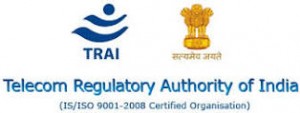 Telecom Commission (TC) today decided to send back Trai proposals on spectrum sharing and trading guidelines as it seeks more clarification on certain issues.
Telecom Commission (TC) today decided to send back Trai proposals on spectrum sharing and trading guidelines as it seeks more clarification on certain issues.
According to sources, the panel, which is the highest decision making body of Department of Telecom, discussed the issue, wherein it was decided to seek further clarity on certain points from Trai.
“The Trai proposals were discussed at the meeting. There is a need for further clarification on certain issues and it was decided to send back the recommendations to Trai,” a source said.
As per practice in place, the Telecom Regulatory Authority of India (Trai) sends back the final comments in 15 days which are then again placed before the TC.
Telecom minister Ravi Shankar Prasad had earlier announced that the guidelines would be brought out shortly.
The minister is also believed to have instructed officials to examine Trai’s recommendations keeping in view the present and future market potential of telecom sector.
Prasad met senior officials of DoT in last couple of days to review the guidelines, which are important for the telecom sector.
The meeting of Telecom Commission was even advanced, as earlier it was scheduled to take place on April 29.
Spectrum sharing will allow telecom companies to share their unutilized airwaves with other service providers in the same telecom circle.
Trai had last year recommended sharing of all categories of telecom airwaves held by operators, including spectrum allocated at old price of Rs 1,658 crore or assigned without auction.
The regulator had also recommended trading of spectrum.
At present, the government allocates spectrum to telecom firms through auctions only.
Once trading is allowed, it will lead to efficient use of radio-waves by enabling telecom operators, that have a lower subscriber base or unutilised spectrum, to trade in it.
Apart from guidelines, the TC discussed about providing telecom connectivity in Andaman and Nicobar islands.
The issue of Sistema Shyam Teleservices closing its services in certain circles, after the licence of the company was cancelled by the Supreme Court, was also deliberated.









